Description
Introduction:
BY- Aamir Ul Haq Bhat, Sahil Ali Mir and Numaan sheikh
Nilsar is a serene village located in the Wagoora Tehsil of Baramulla district in Jammu and Kashmir. Nestled amidst fertile agricultural lands and the scenic charm of the Kashmir Valley, it reflects the essence of rural life where tradition and nature blend harmoniously. With its close-knit community, reliance on farming, and proximity to Baramulla town, Nilsar holds a quiet yet significant place in the socio-cultural fabric of the region.
Village Overview: Nilsar
-
Brief History & Administrative Setting:
Nilsar is a peaceful rural village situated in the Wagoora Tehsil of Baramulla district, in the Union Territory of Jammu and Kashmir. As part of the fertile Baramulla region, Nilsar has long been rooted in agricultural life, with its economic and social rhythms shaped by farming traditions, especially canal-based irrigation. The village is governed by the Duda Bug Gram Panchayat and falls under the Wagoora Community Development Block, making it an important part of the area’s local governance framework. -
Current Population & Demographics (circa 2009):
Nilsar has a population of about 1,169 people, residing in 212 households. The gender distribution includes 603 males (≈ 51.6%) and 566 females (≈ 48.4%). Around 63 individuals (about 5.39% of the population) belong to Scheduled Tribes. The majority of the residents are engaged in agriculture, reflecting the village’s strong dependence on farming and irrigation systems. -
Languages Spoken & Cultural Context:
The main languages spoken in Nilsar are Pahari, Kashmiri, and Urdu. Pahari and Kashmiri are widely used in daily communication, reflecting the linguistic diversity of the Baramulla region, while Urdu is commonly used in schools, administration, and religious settings.
Cultural Heritage
Nilsar embodies the cultural spirit of rural Kashmir, deeply influenced by Kashmiri and Pahari traditions and the region’s Sufi heritage. The nearby Baba Reshi shrine, one of the most significant spiritual centers in Baramulla, has long shaped the village’s cultural and religious life. The shrine not only draws pilgrims from across the Valley but also serves as a reminder of the region’s deep-rooted Sufi traditions of peace, hospitality, and communal harmony.
Within the village, mosques remain central to both worship and social interaction, while seasonal festivals like Eid-ul-Fitr, Eid-ul-Adha, and local Urs gatherings are celebrated with great fervor. Cultural expressions are seen in folk songs sung in Kashmiri and Pahari, oral storytelling, and age-old customs tied to farming and community living. The villagers preserve traditional ways of life, wearing the pheran in winter, preparing Kashmiri delicacies such as harissa and wazwan dishes on special occasions, and practicing crafts like woodwork and weaving. Known for their warmth and hospitality, the people of Nilsar continue to live much as their ancestors did—rooted in the land, their faith, and their shared traditions.
Attractions and Tourism
Though Nilsar is a small village, it offers visitors a chance to experience the beauty and simplicity of Kashmiri rural life. Surrounded by fertile fields and orchards, it is also well-connected to some of Baramulla district’s most important cultural and natural landmarks, making it a peaceful stop for travelers who wish to see beyond the usual tourist trails.
Main Attractions:
-
Spiritual Sites: The Baba Reshi Shrine, dedicated to the revered Sufi saint Baba Payamuddin Reshi, is one of the most significant attractions near Nilsar. Thousands of devotees visit the shrine each year, making it a spiritual and cultural hub of the region.
-
Agriculture & Orchards: Nilsar is surrounded by paddy fields, maize crops, and canal-irrigated farms, offering a glimpse of Kashmir’s agricultural heritage. Nearby, the apple orchards of Wagoora and Sopore are a major draw for visitors, especially during the harvest season, when the valley is filled with fresh produce and the bustling activity of fruit markets.
-
Natural Beauty & Excursions: Located within easy reach of Gulmarg, one of Kashmir’s most famous tourist destinations, Nilsar provides a quieter countryside base. Travelers can enjoy walks through green fields, traditional water canals, and village trails before heading to Gulmarg’s meadows and ski slopes. The surrounding landscapes, especially in spring and autumn, are filled with blossoms and vibrant colors.
-
Village Life & Cultural Experiences: Visitors to Nilsar can experience traditional Kashmiri hospitality through homestays, where they can share meals like harissa and wazwan dishes, learn about local crafts, and participate in rural life. Seasonal festivals such as Eid and Urs celebrations bring the community together with music, folk songs in Kashmiri and Pahari, and a warm atmosphere that visitors are often welcomed into.
Best Times to Visit:
The ideal time to visit Nilsar is from April to October, when the weather is mild, orchards are in bloom or fruit-bearing, and farming activities are at their peak. Spring and autumn are particularly beautiful, offering colorful blossoms and harvest scenes. Winters, though cold, provide a quiet charm, with snow-covered fields and traditional village life at its most authentic.
Tourist Accommodations:
While Nilsar itself does not have hotels, visitors can find guesthouses, lodges, and homestays in nearby Wagoora, Sopore, and Baramulla town. For those looking for a broader range of facilities, Gulmarg and Srinagar offer hotels and resorts within short travel distance. Rural tourism initiatives are slowly emerging, and homestay options in and around the village provide a more personal way to explore the region.
Cuisine and Food
The cuisine in Nilsar reflects a fusion of Kashmiri and Pahari traditions. Meals are usually simple, home-cooked, and based on locally available produce.
-
Staple Foods: Rice and maize form the base diet. Vegetables grown in the area, along with pulses and dairy, are commonly consumed. Pahari-style maize bread and Kashmiri dishes like haakh (collard greens) are regular household meals.
-
Special Dishes: During festivals and weddings, traditional Kashmiri wazwan items like gushtaba and rogan josh are prepared in wealthier households, while Pahari-style meat curries and simple stews are common in others.
-
Tea Culture: Noon chai (salted pink tea) and kehwa (saffron green tea) are widely enjoyed, often accompanied by local breads such as girda.
-
Food Festivals: Unlike Ladakh, Nilsar does not have large-scale food festivals, but community feasts (wazwan) during marriages and religious events are important culinary gatherings.
Community and Lifestyle
-
Village Lifestyle: Life in Nilsar is rooted in agriculture and community bonding. People live at a slow pace, valuing traditions and hospitality. Daily life follows seasonal agricultural cycles, with social life centered around mosques, shrines, and shared cultural events.
-
Cultural Fusion: The village is unique for its blend of Kashmiri and Pahari culture. This is reflected in festivals, marriage traditions, music, and dress styles.
-
Common Occupations: Most villagers work as laborers in paddy fields, maize farms, or apple orchards. Some also work seasonally in nearby towns like Tangmarg and Baramulla.
-
Community Engagement: Religious gatherings at the mosque and social interactions at the Shrine of Baba Reshi play a central role in community life. Storytelling, folk music, and group farming activities further strengthen bonds.
Educational Facilities
Nilsar has limited education infrastructure:
-
Schools: One middle school exists, but with very few rooms where 9 classes are taught in cramped conditions.
-
Quality & Challenges: Lack of classrooms and teachers makes it difficult to provide quality education.
-
Literacy Rate: Despite challenges, the literacy rate is growing, especially among the younger generation, with many children aspiring for higher education in Tangmarg and Srinagar.
Conservation and Sustainability
-
Villagers practice subsistence farming, which by nature is sustainable.
-
Use of traditional irrigation canals (like the one near Srunz fall) helps maintain farmlands.
-
Awareness of environmental protection is increasing, especially because the village is close to tourist destinations like Shrine Baba Reshi.
Accessibility and Connectivity
-
Access Routes: Nilsar can be reached via local roads from Tangmarg. The proximity to the Shrine Baba Reshi makes it accessible to pilgrims and visitors.
-
Local Transportation: Villagers mostly walk, use shared taxis, or travel by small vehicles. Buses are rare and mostly seasonal.
-
Mobile & Internet: Both Jio and Airtel networks work here, though internet speeds may fluctuate during winters and bad weather.
Local Businesses and Employment
-
Most employment is tied to agricultural labor.
-
Small shops sell household goods, with some selling local jewelry and handicrafts.
-
A few families rely on tourism from Baba Reshi Shrine visitors, offering tea stalls, food, or guidance.
-
Children are often involved in helping families with work, both in fields and in shops.
Health and Wellbeing
-
Healthcare Facilities: The village does not have a full hospital. Locals depend on a nearby dispensary, while serious cases are referred to Tangmarg or Baramulla hospitals.
-
Wellness Practices: Traditional herbal remedies are common, passed down through families. Physical activities like farming, walking, and outdoor play keep people active.
Arts and Entertainment
-
Cultural Blend: Entertainment is tied to Kashmiri and Pahari traditions.
-
Music: Folk Pahari songs and Kashmiri wanwun (wedding songs) are performed during social events.
-
Dress & Handicrafts: The pheran is widely worn in winters, while handwoven woolens and wooden crafts are part of household culture.
-
Festivals: Eid, Urs at Baba Reshi Shrine, and local marriage feasts form the highlights of cultural entertainment.
Sports and Recreation
-
Popular Sports: Cricket and football are the main sports played by youth. Informal matches are common in open fields.
-
Adventure Activities: The nearby hilly terrain provides opportunities for trekking and hiking, though mostly enjoyed by locals rather than tourists.
-
Community Sports: Villagers sometimes organize friendly football matches with neighboring villages.
Social and Community Initiatives
-
Ongoing Projects: Development of irrigation canals and improvement of road connectivity are the current main initiatives.
-
Community Priorities: Villagers are collectively demanding better school infrastructure and healthcare access.
Environment and Nature
Nilsar is surrounded by lush fields, orchards, and streams, unlike the desert landscape of Ladakh.
-
Flora: Apple orchards, walnut trees, maize, rice paddies, and wildflowers.
-
Fauna: Monkeys, Himalayan black bear (in higher reaches), langurs, and common livestock like sheep, goats, and cows.
-
Natural Attractions: The Srunz fall canal is a scenic spot, and the proximity to the Baba Reshi forested area makes the environment rich and green.
Education and Development
-
Schools: Only one middle school with limited capacity.
-
Skill Development: No formal programs exist, but some youth migrate to towns for vocational training.
-
Future Aspirations: Villagers strongly wish for better school infrastructure and access to higher education locally.
Historical and Cultural Significance
-
Nilsar lies close to the Shrine of Baba Reshi, an important spiritual and cultural site that draws thousands of pilgrims annually.
-
The village itself represents a fusion of Kashmiri and Pahari heritage, making it significant as a cultural crossroads.
-
Oral traditions, folk songs, and customs passed down over generations preserve the history of both cultures in everyday life.
Photos
Location Map
Amenities
- Website
Contact Information
| Address |
Nilsar, Baramulla, Jammu and Kashmir, India PIN - 193101 |
| Phone Number |
9149971855 |
| Email Address |
Reviews (4)


Amazing work

good work

That's a lovely description of Nilsar! It sounds like a place where tradition and community are truly valued. Thinking about the sustainable practices mentioned, it reminds me of the importance of maintaining a balance, almost like finding the right path forward. It’s all about careful navigation, much like when I’m trying to achieve high scores on the Slope Game! I wonder if the children in Nilsar play anything similar in their free time.

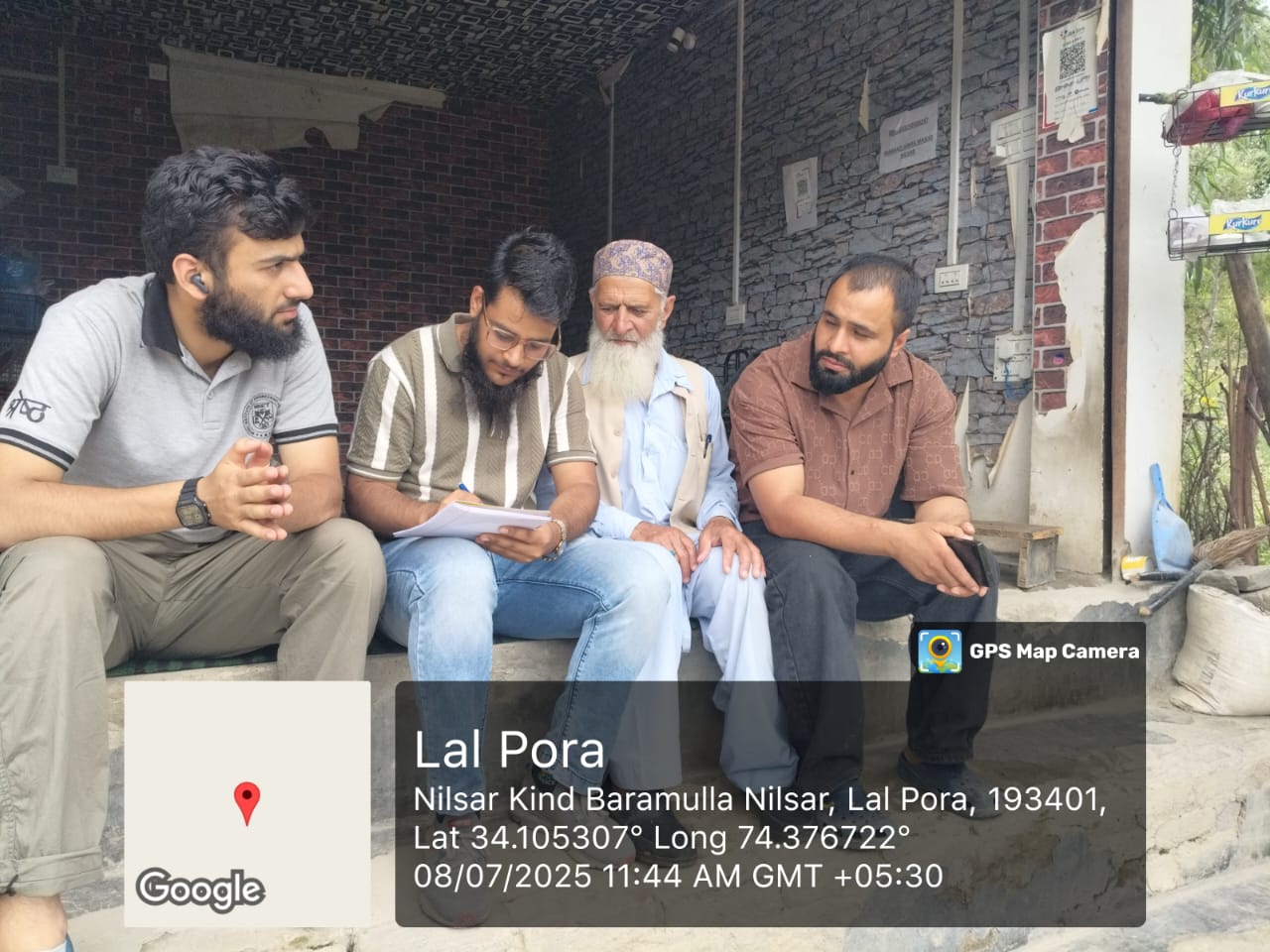
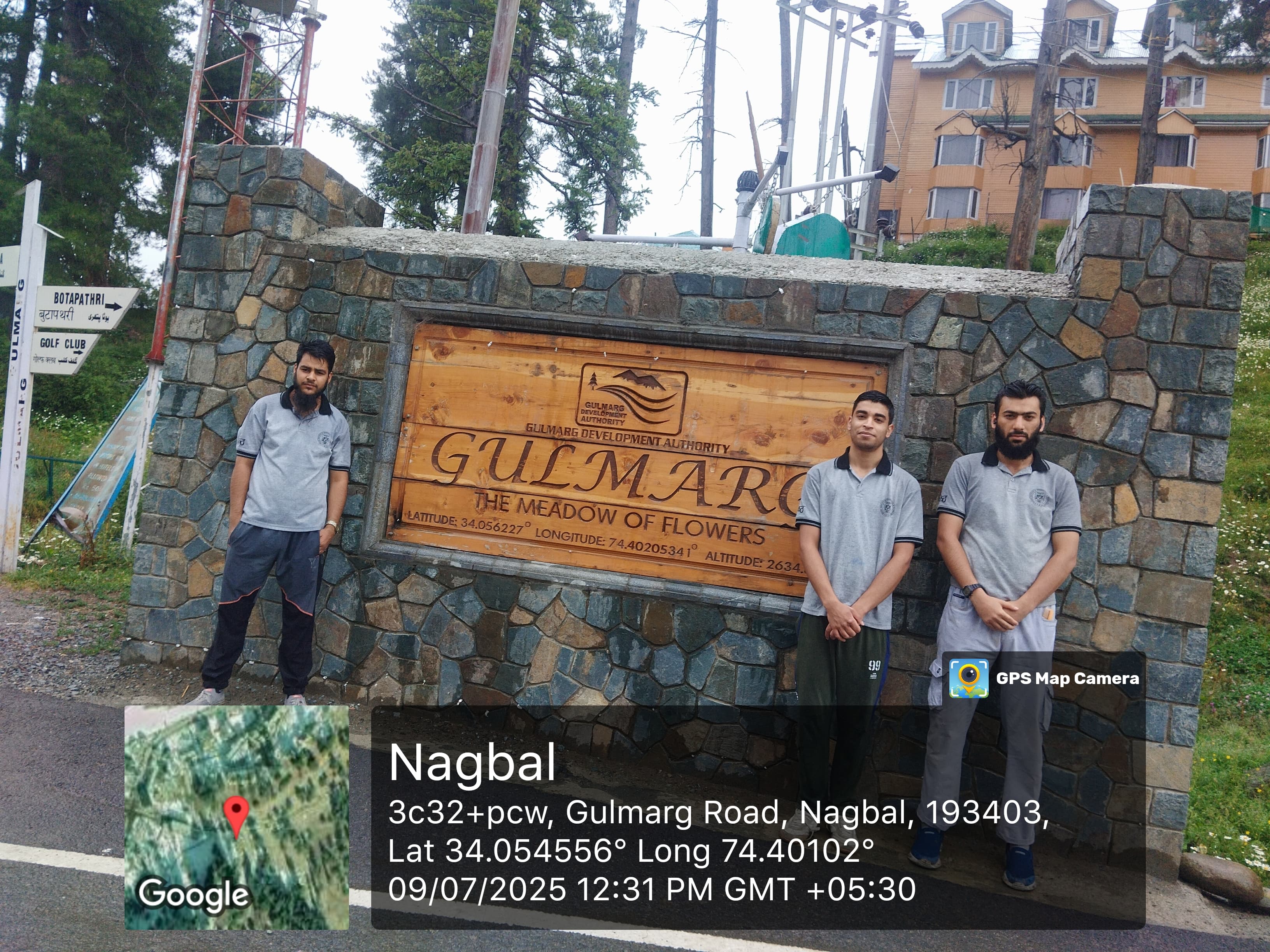
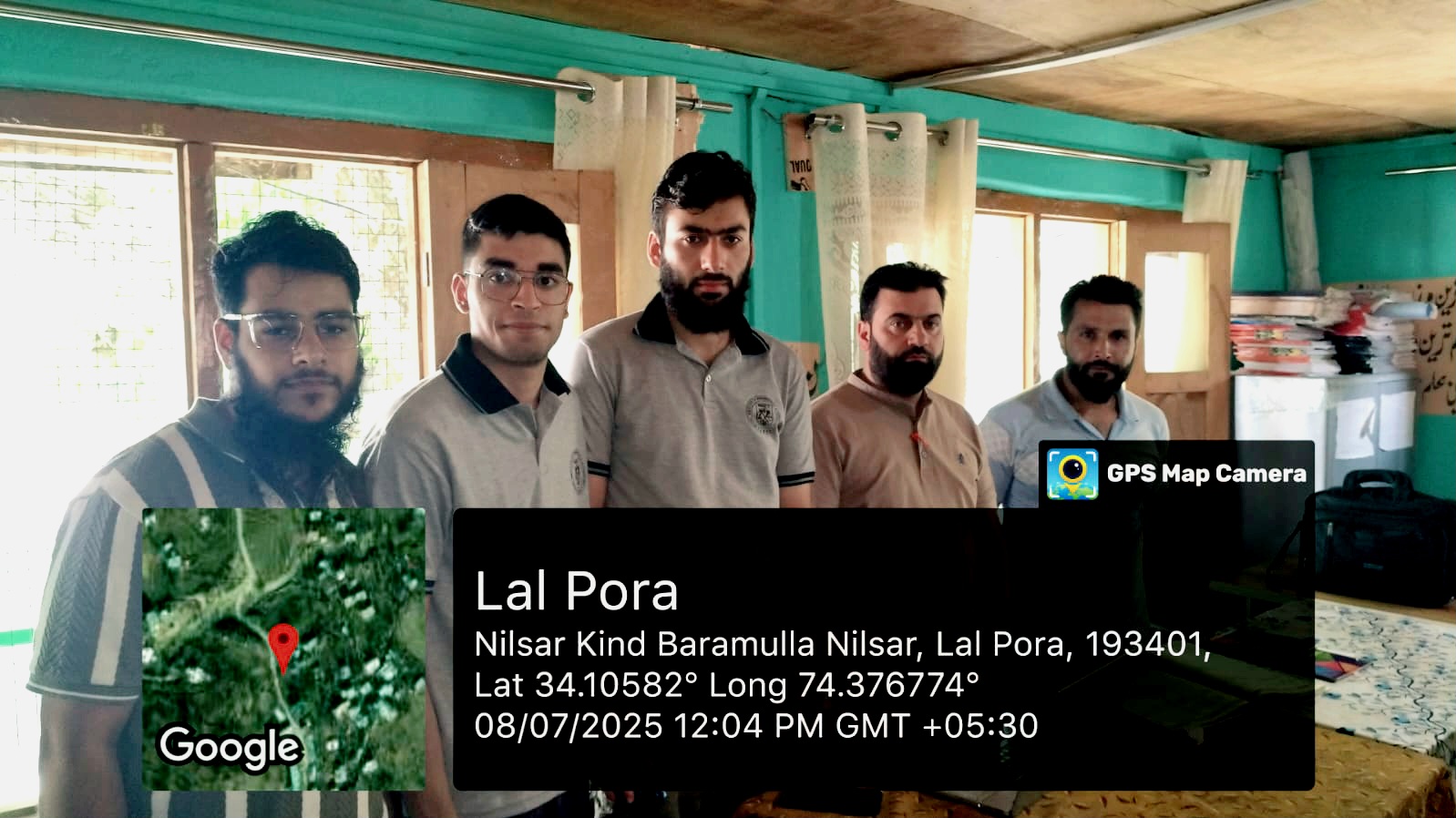
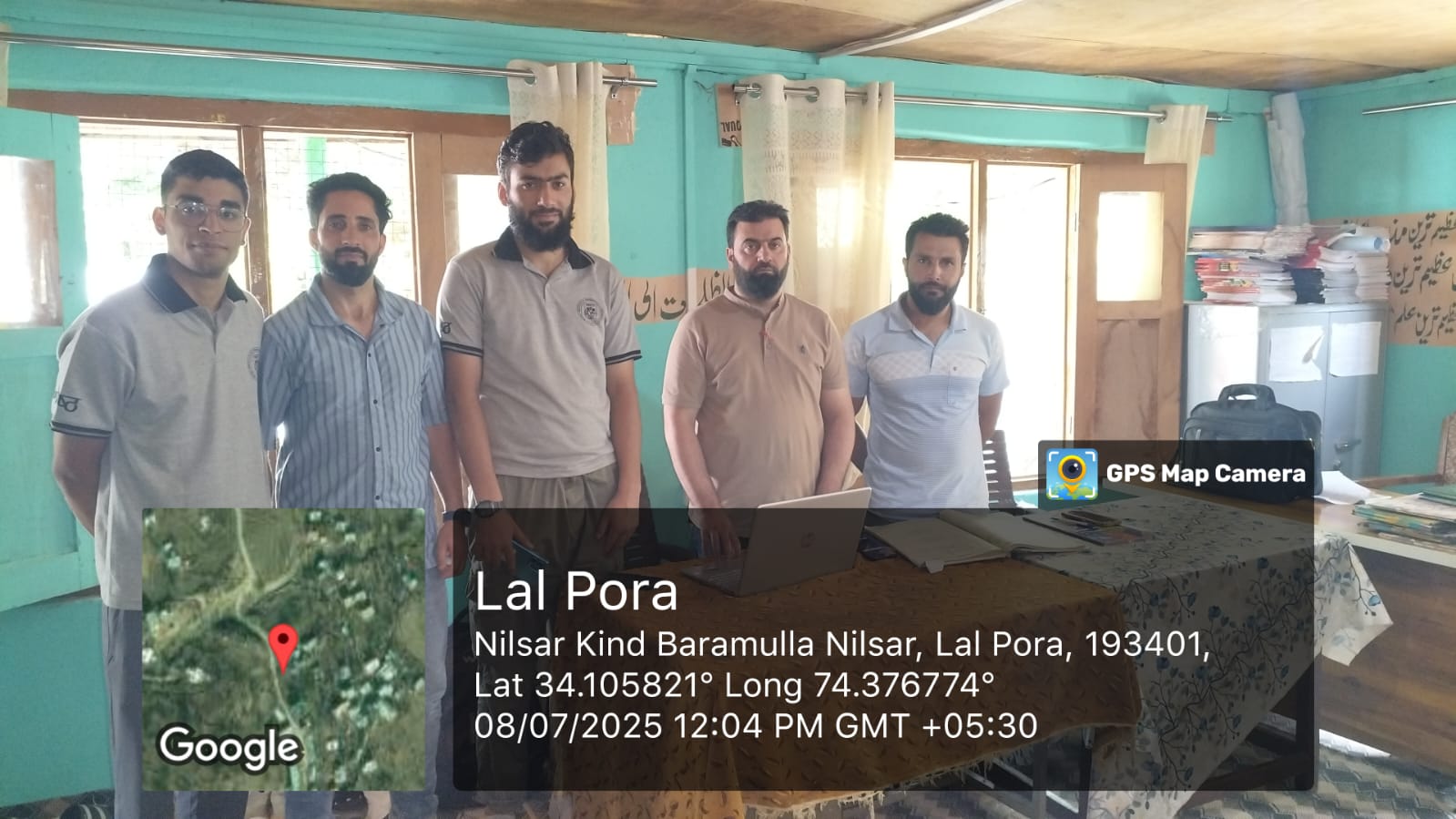
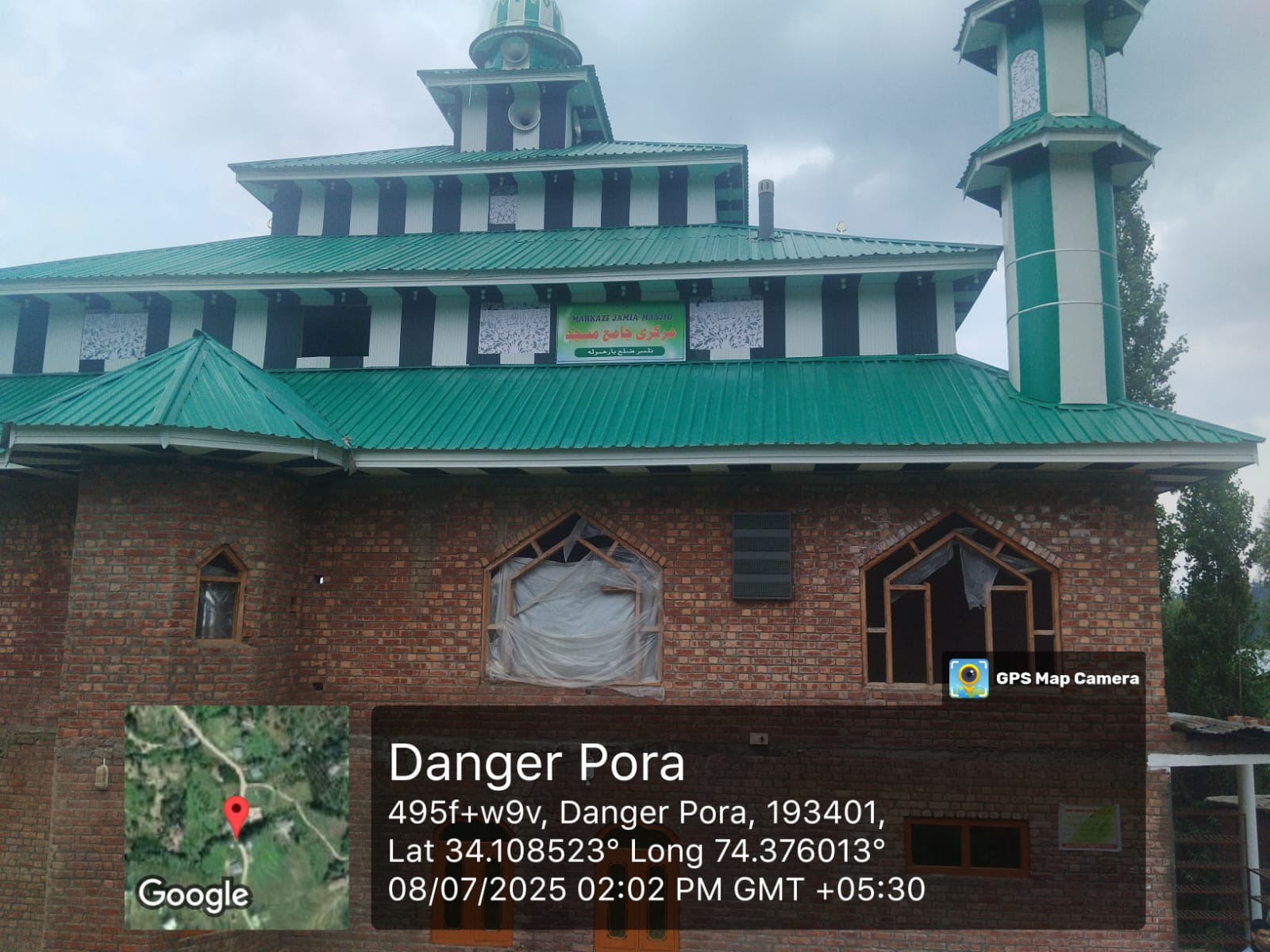
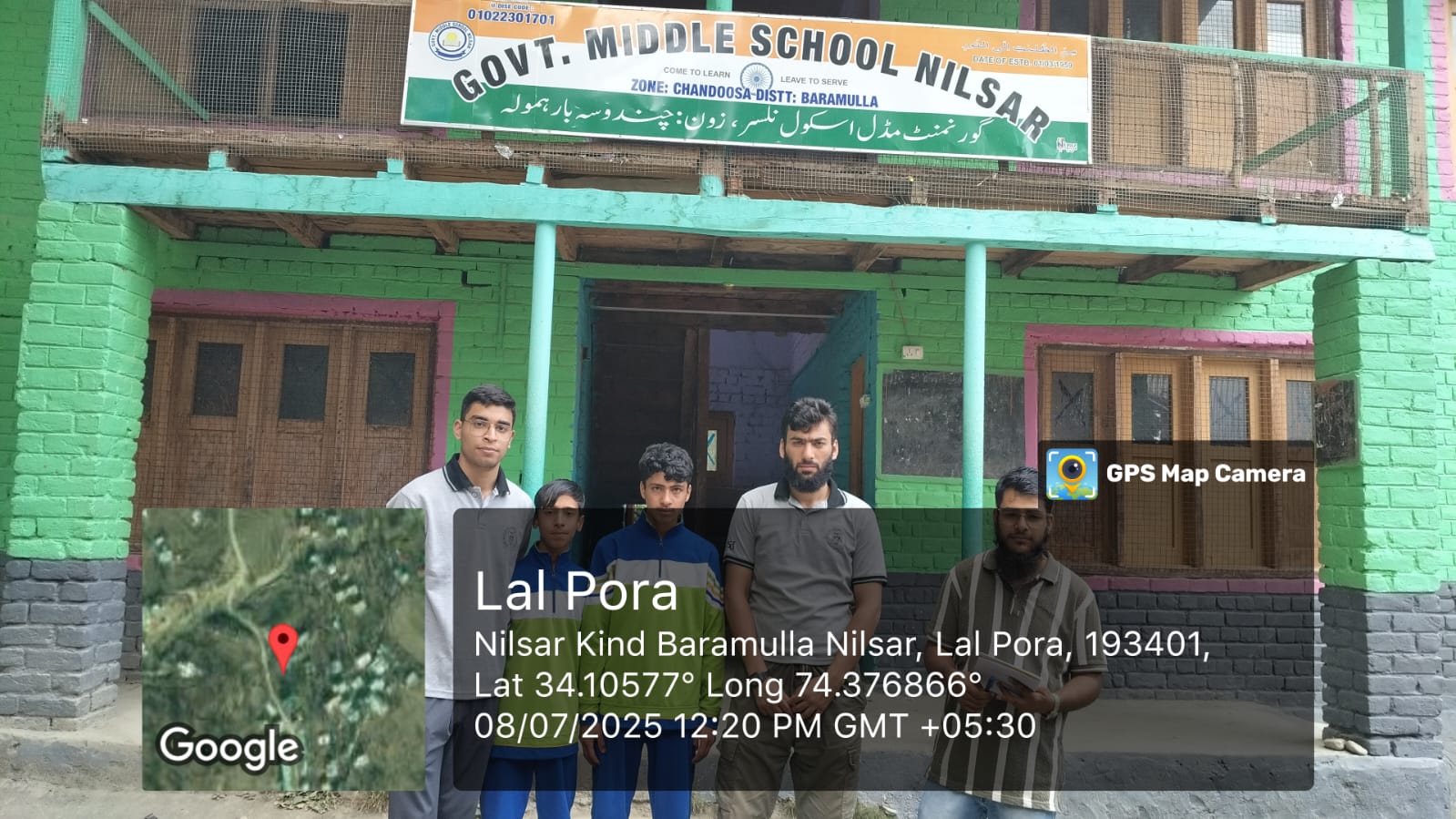
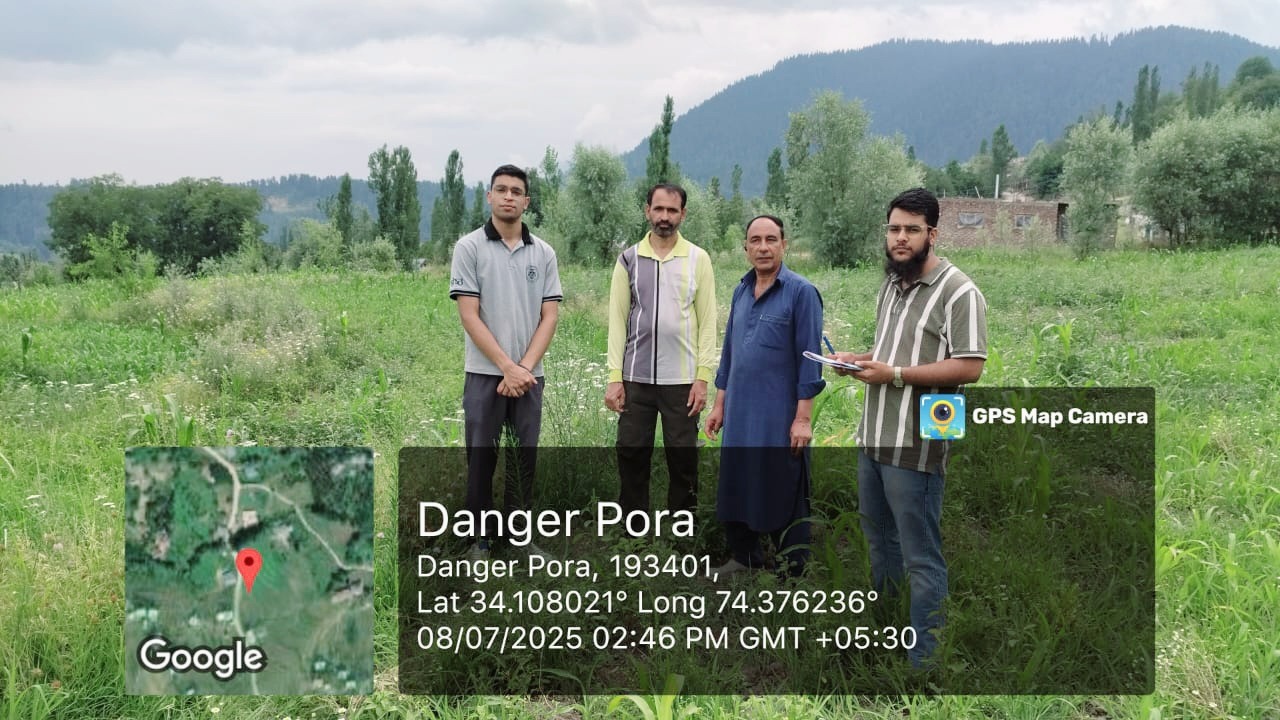
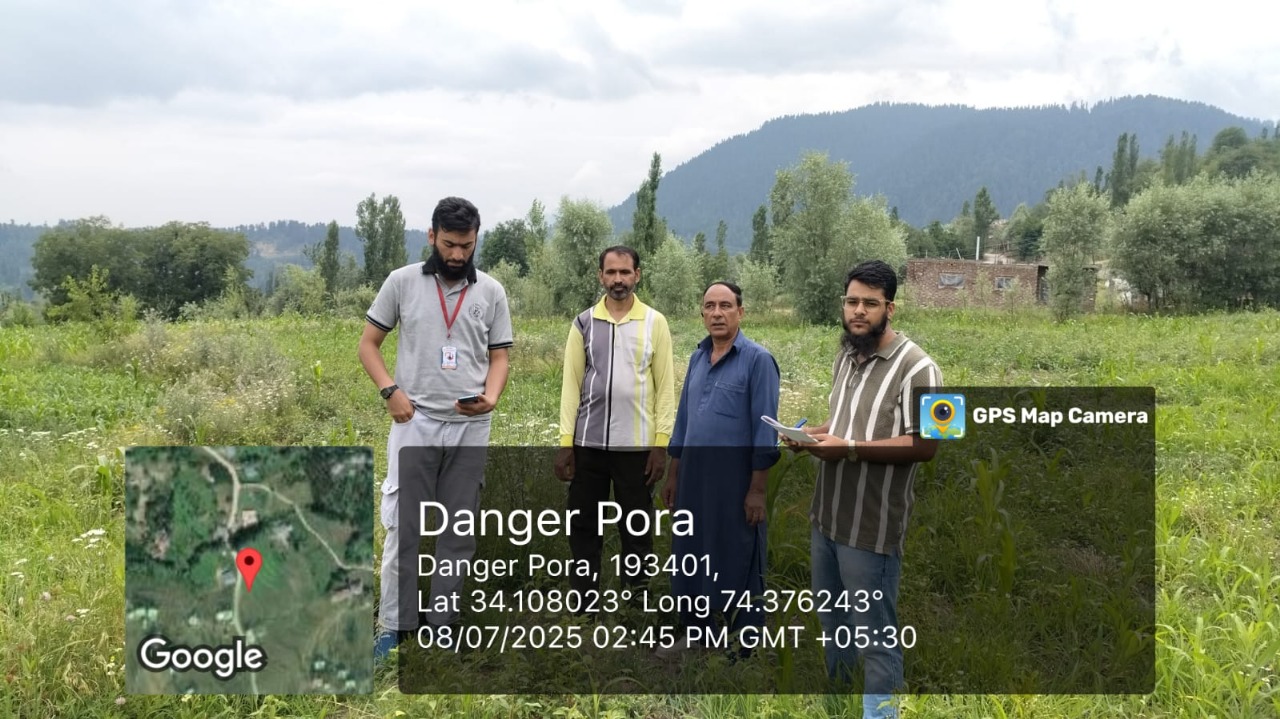
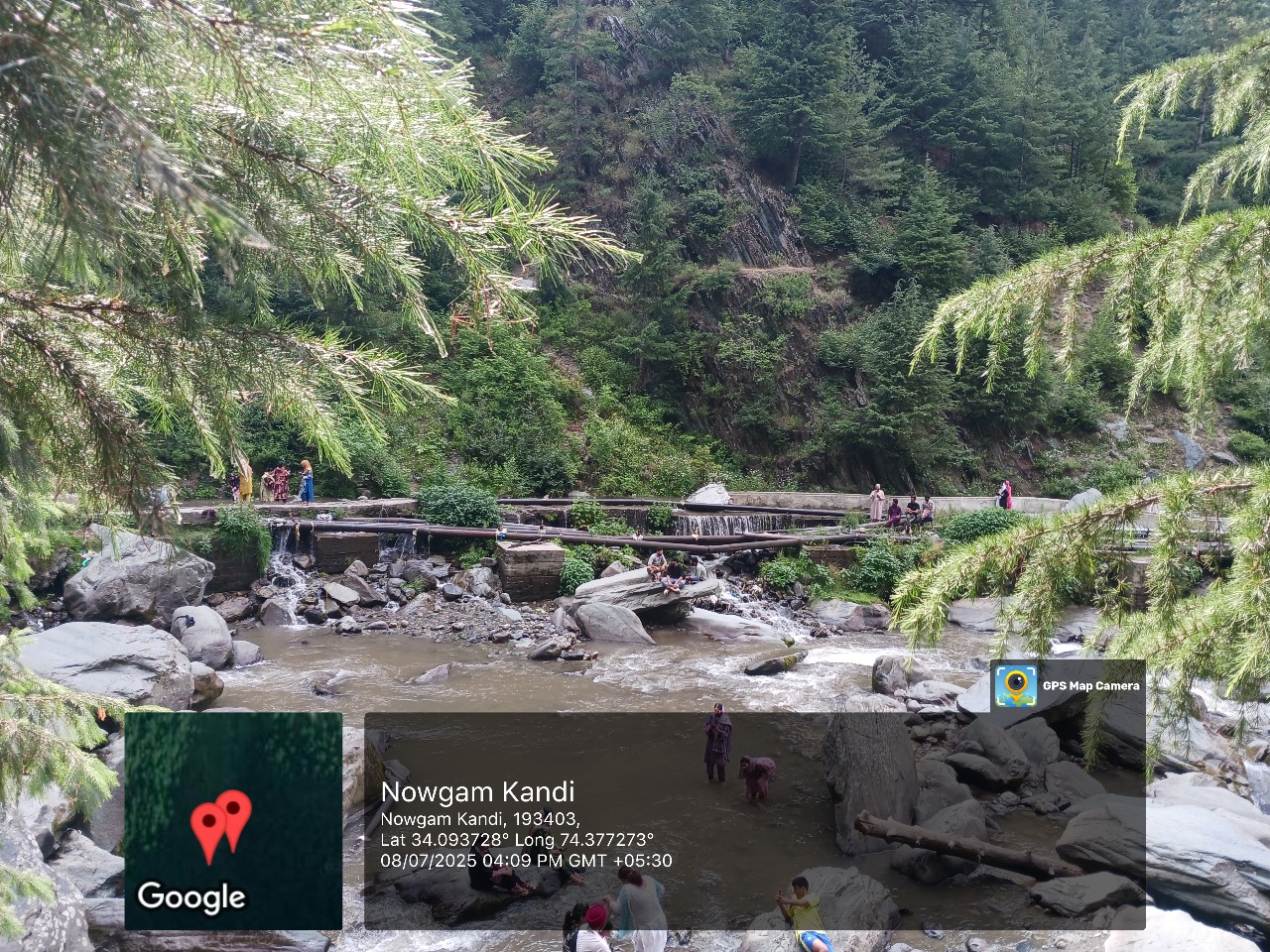
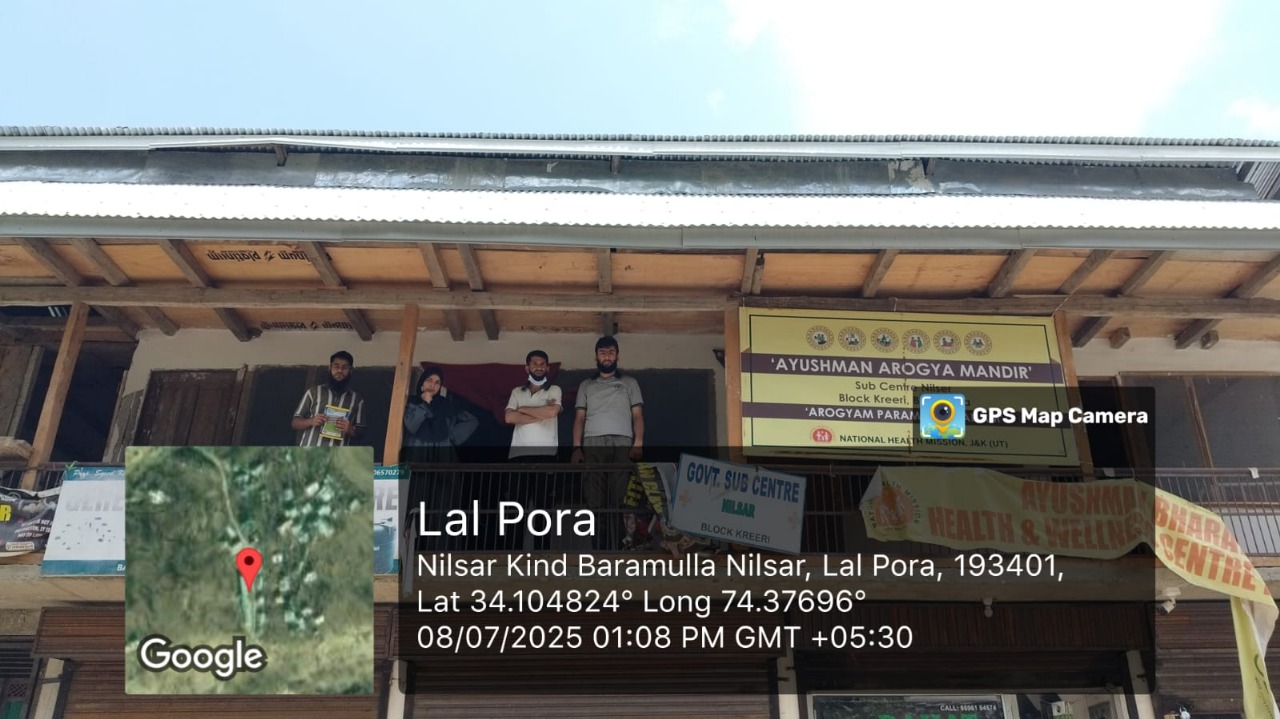
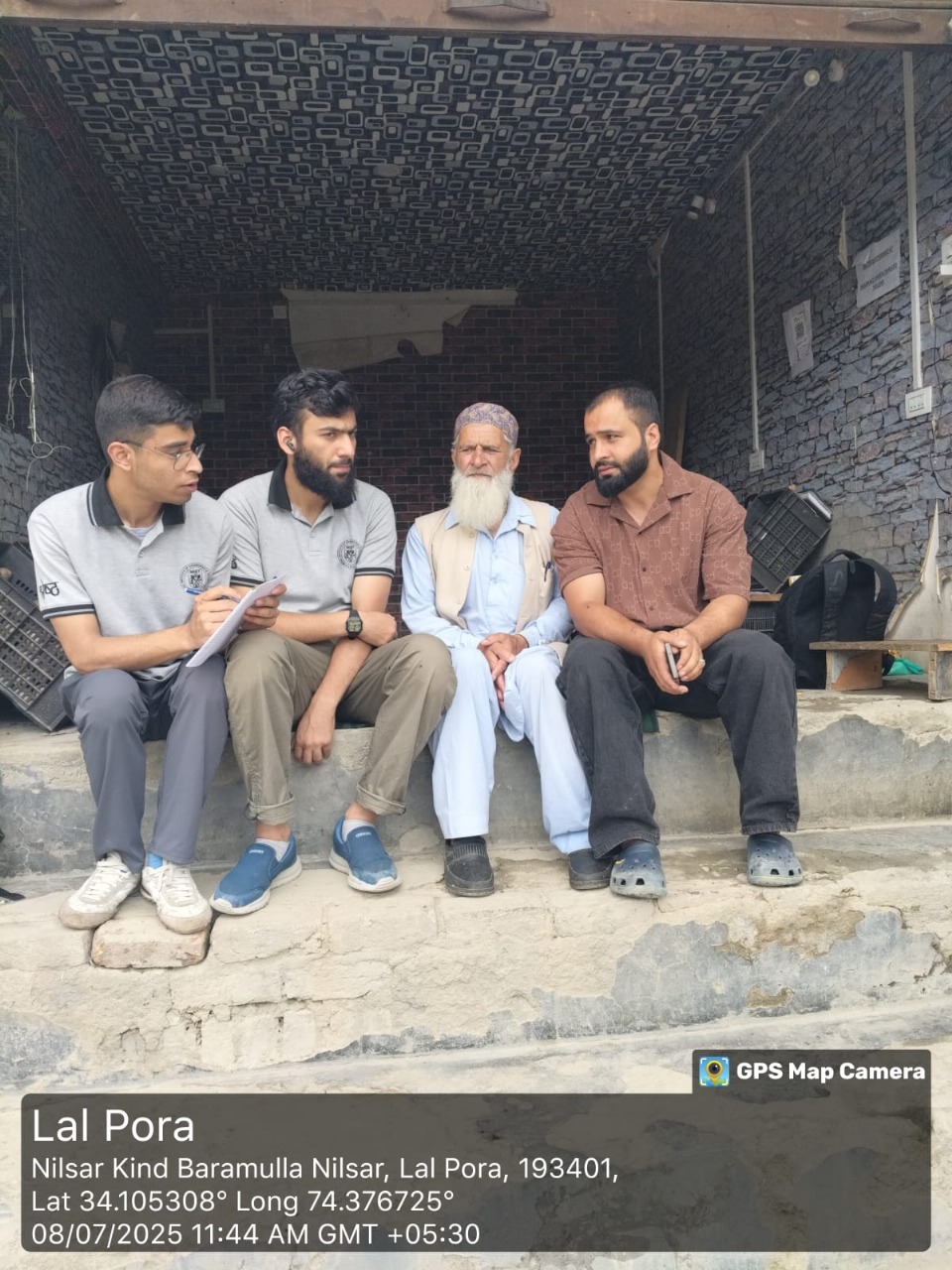
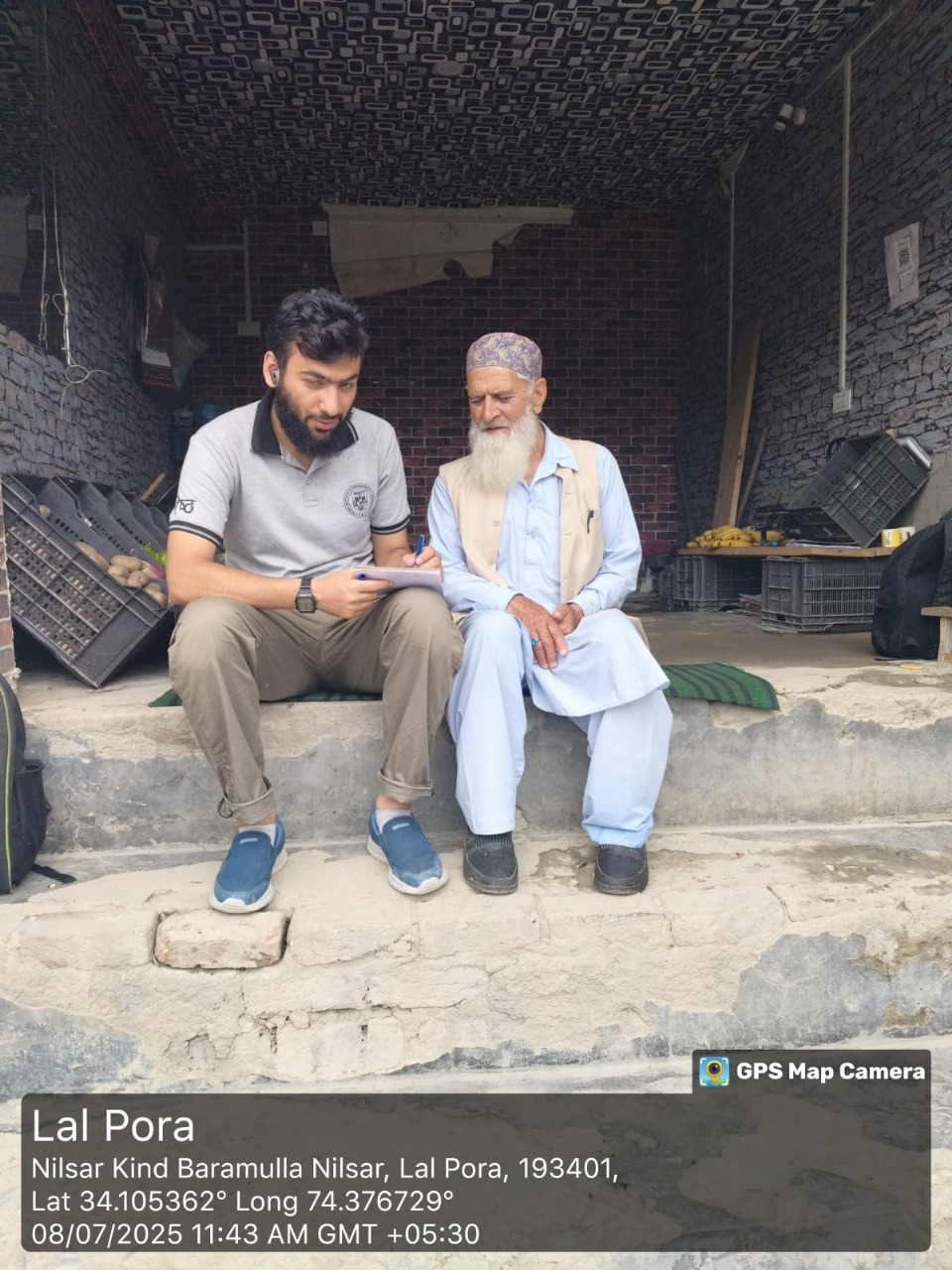
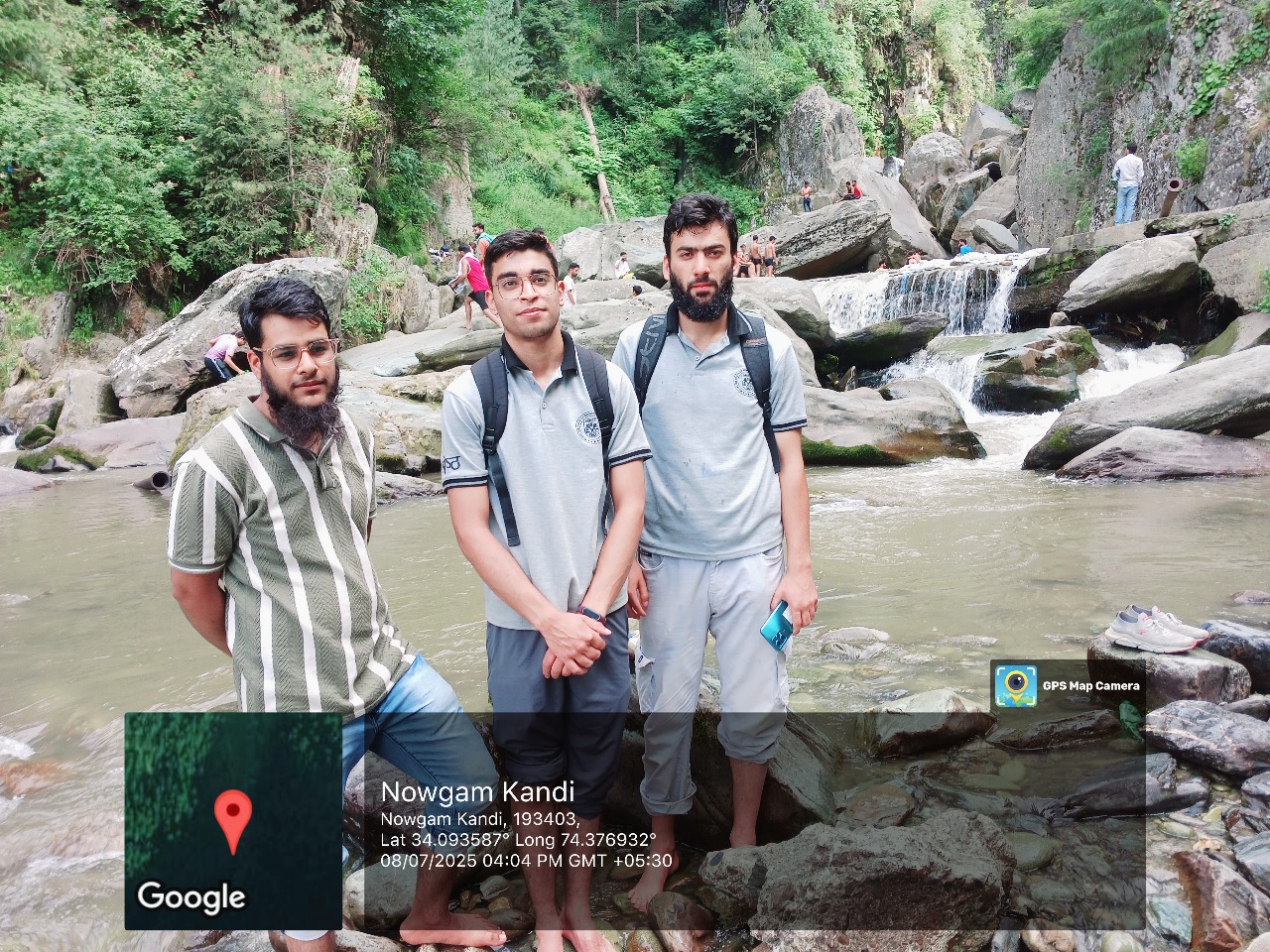
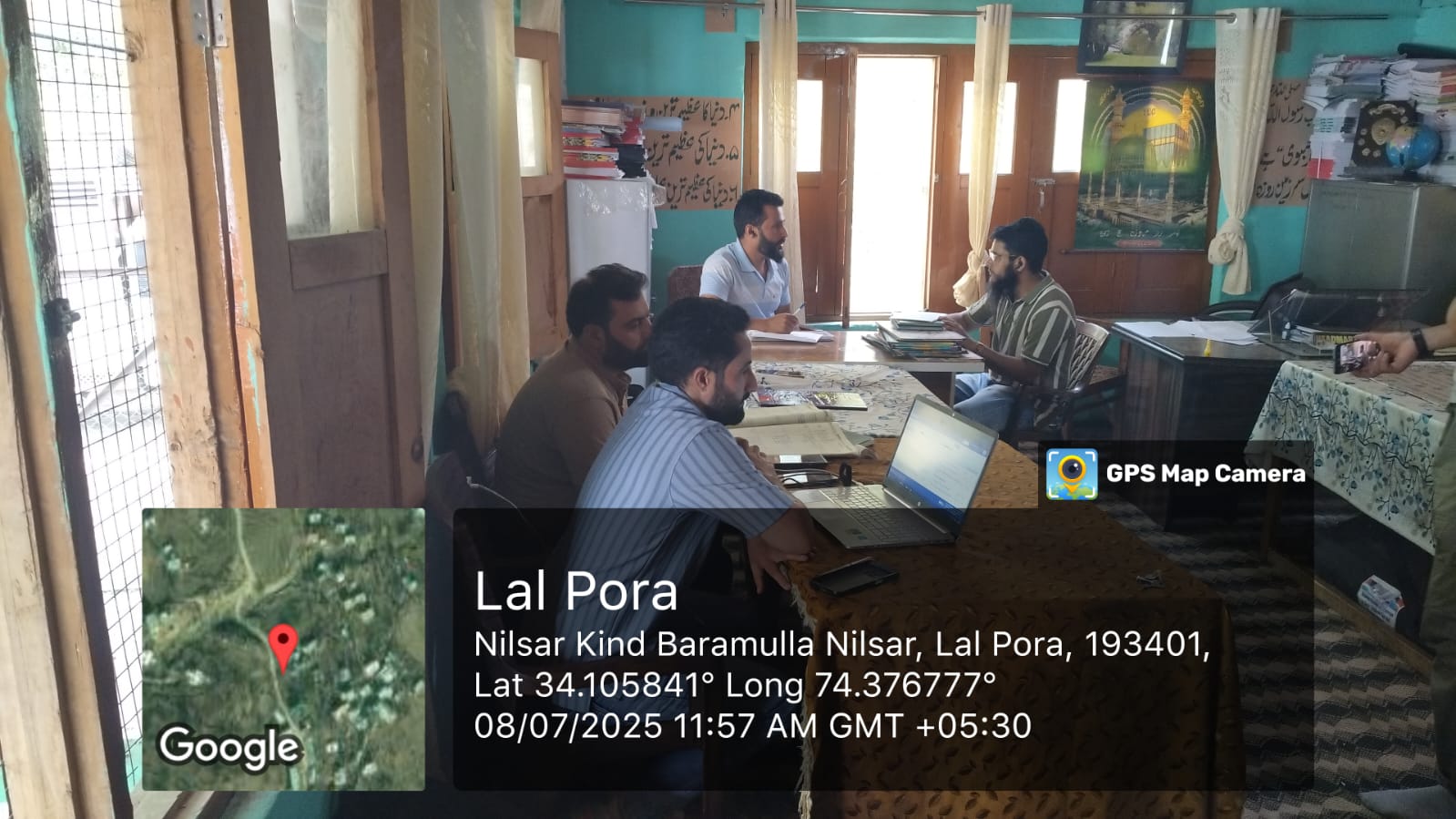
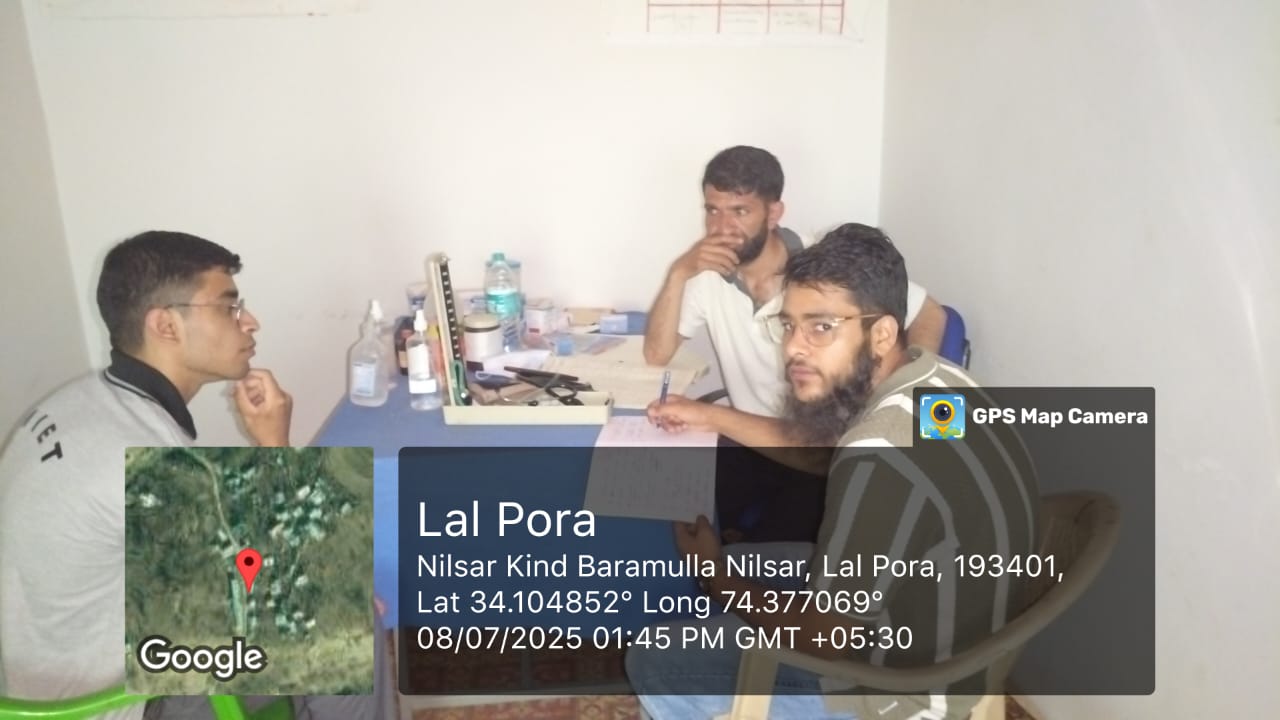
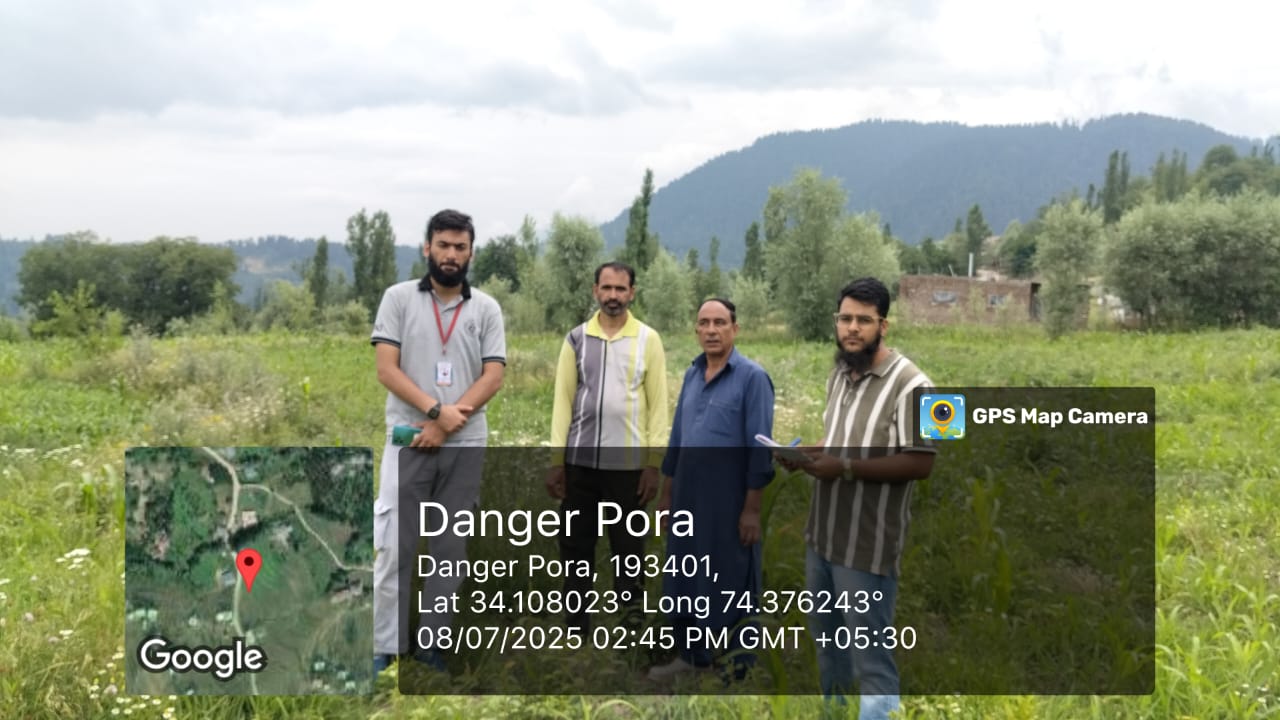
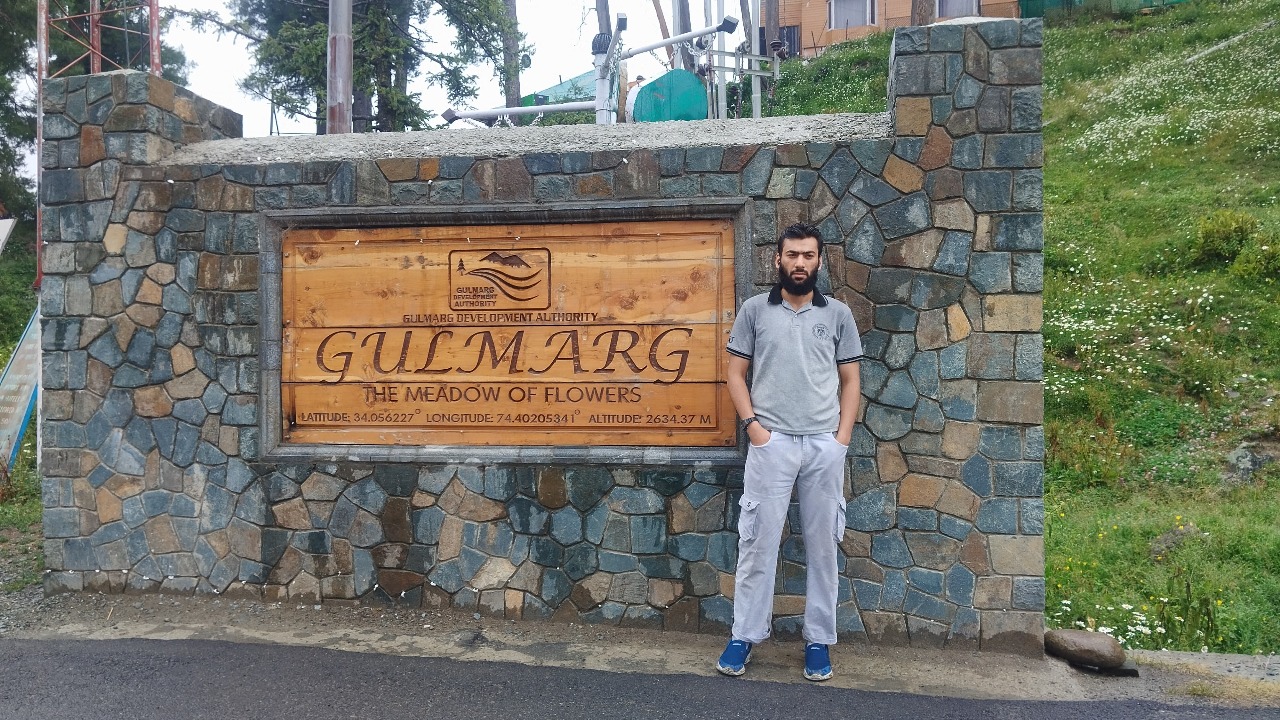
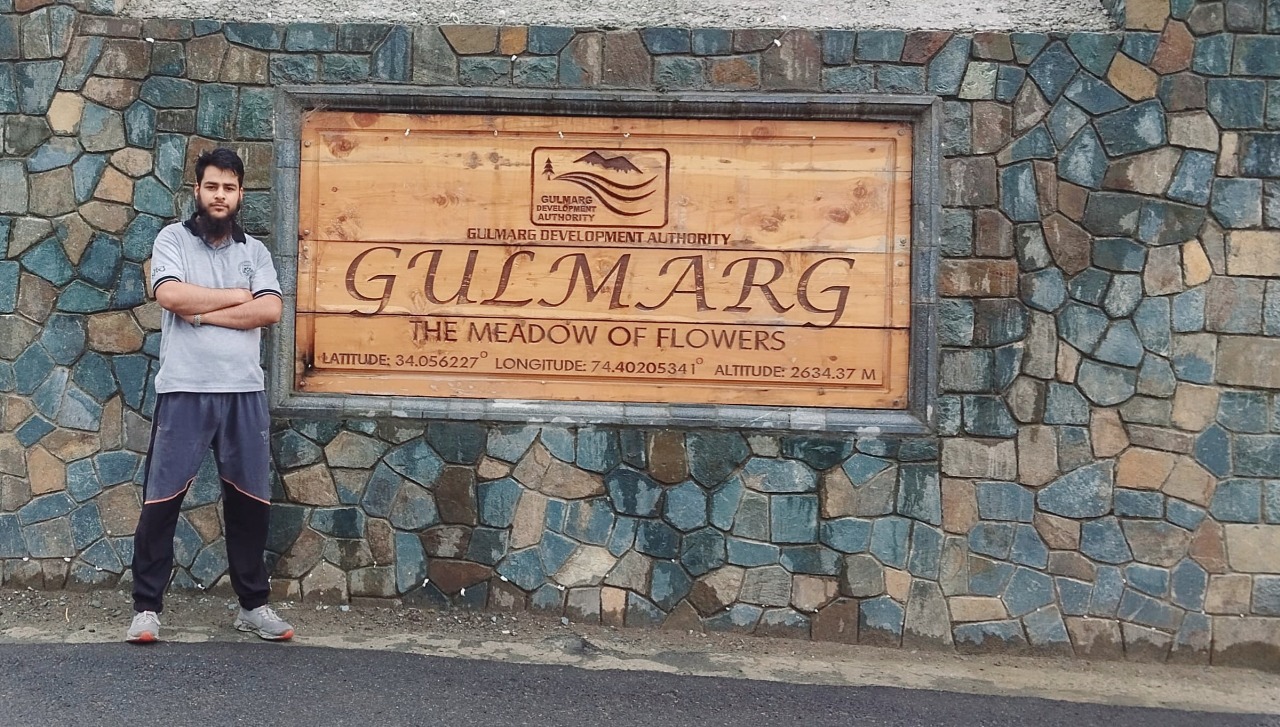
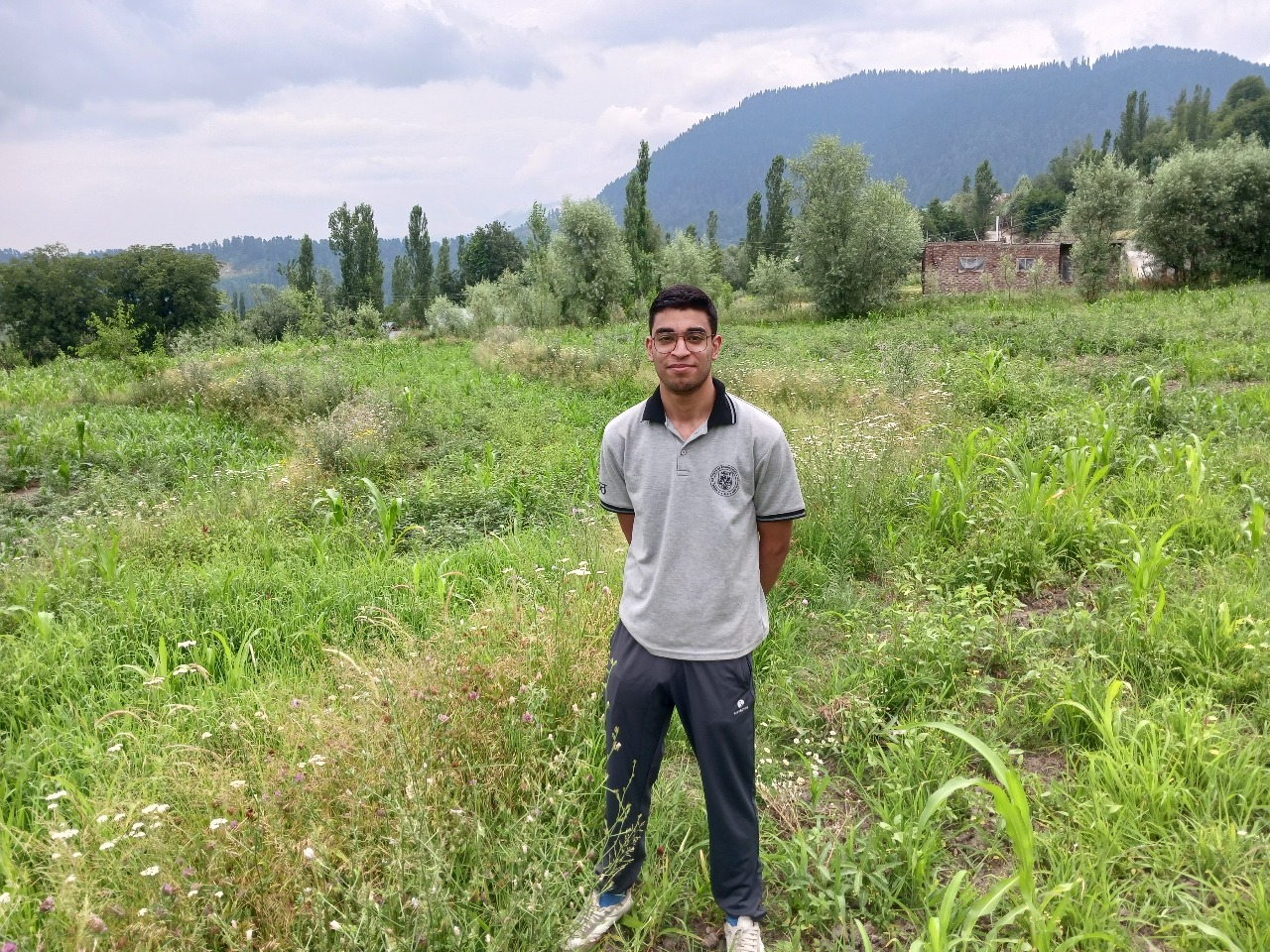
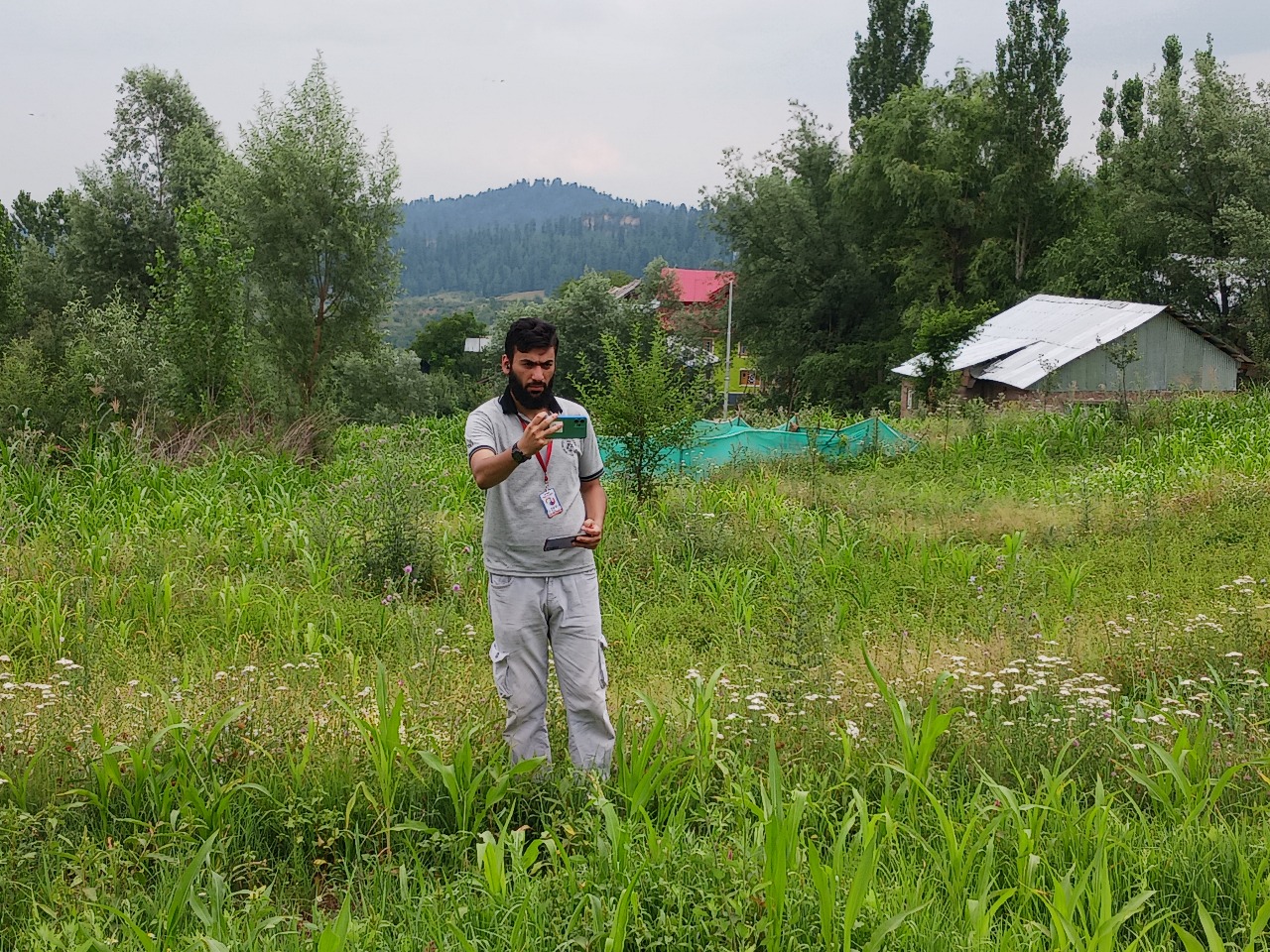
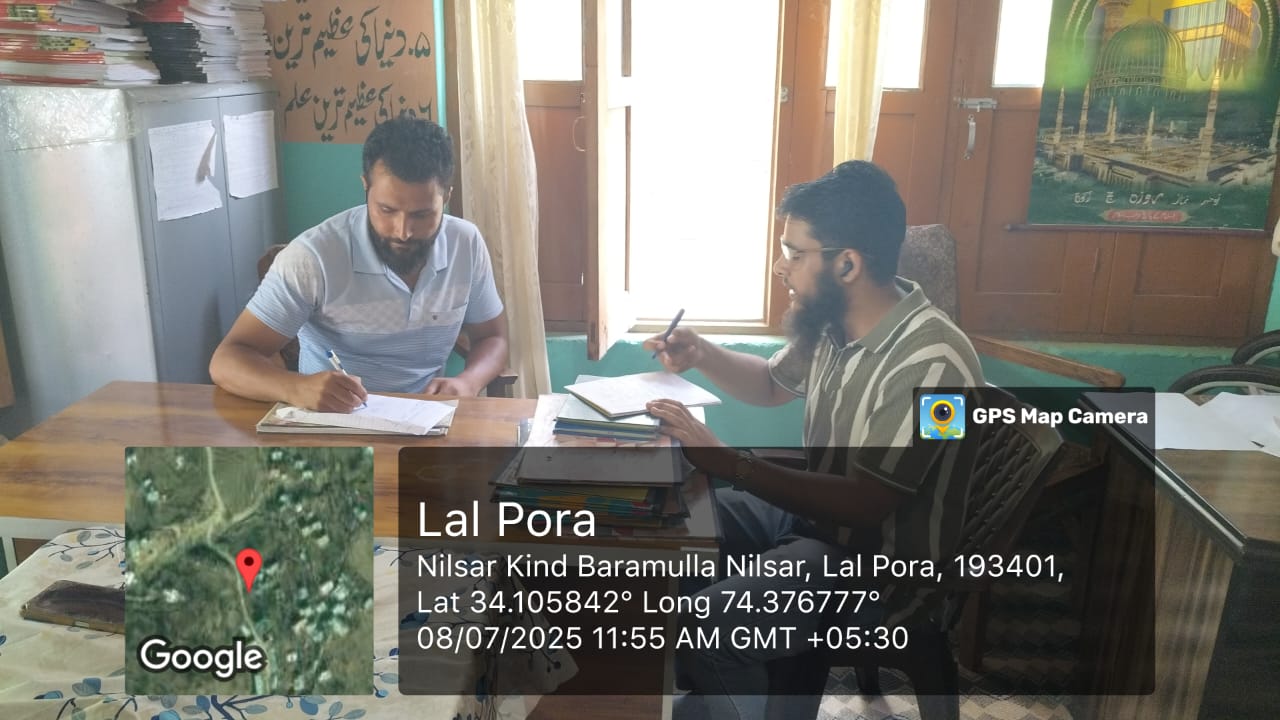
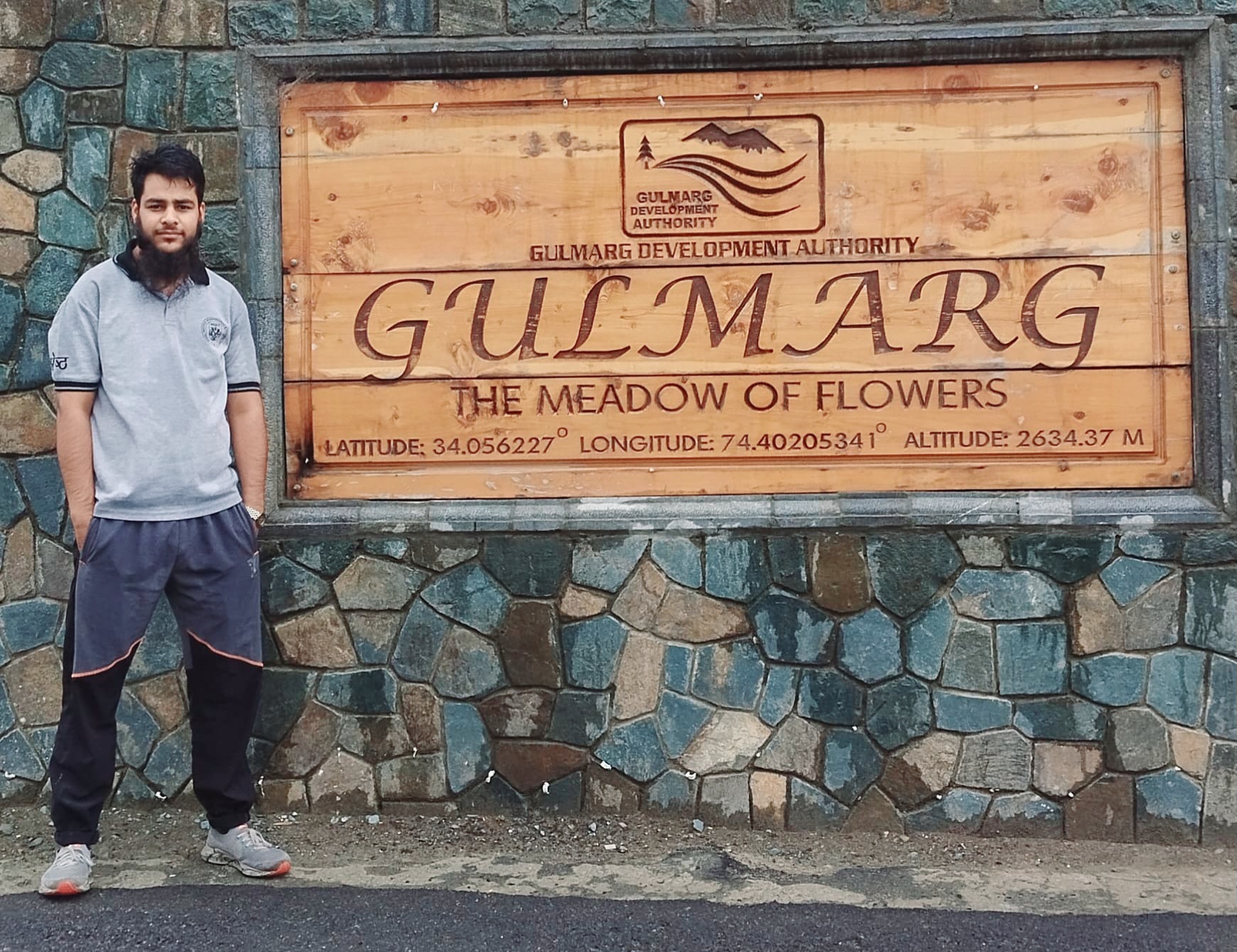

Great Work Guys. Surely Reflects Technical Proficiency and Deep Respect for OUR Cultural Heritage.